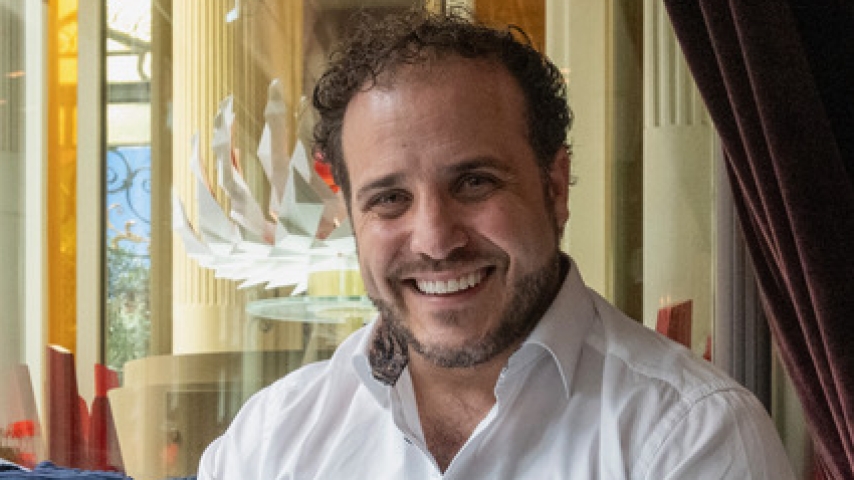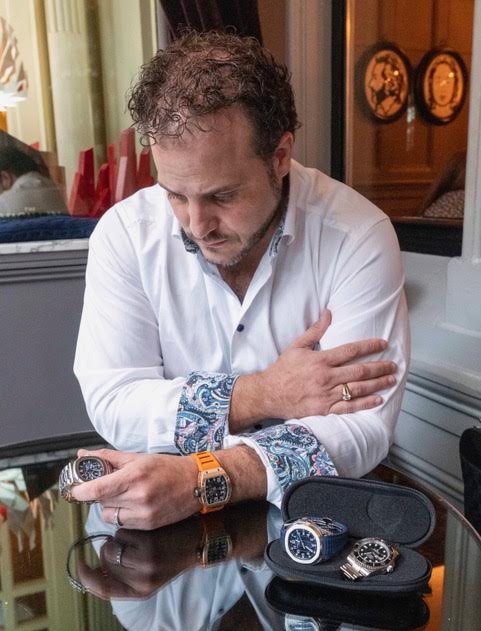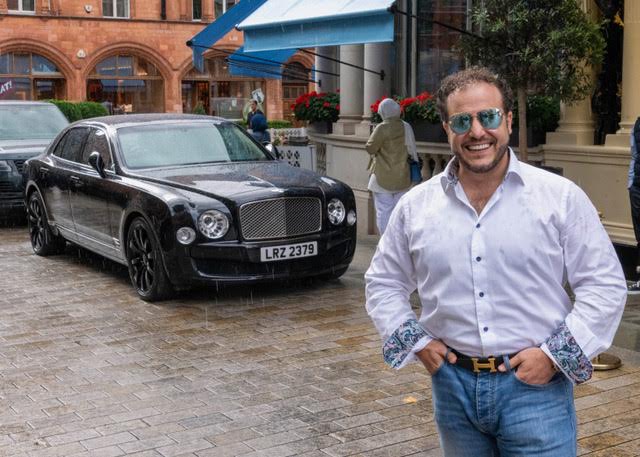
WHEN businesses collapse, Wolfgang Douglas is often called in to pick through the wreckage.
He’s a specialist in asset liquidation, a commercial model that thrives in a downturn, in order to reap profits during the upward cycle.
The 38-year-old, who has a plethora of business contacts in the Principality where he is a frequent visitor, will sell off anything and everything from property and building materials to luxury watches, yachts and Bentleys.
“Sometimes, it can be about salvaging value for owners in distress so they can re-direct their capital to other more pressing positions,” he says. “But, more often, it’s just about bailing out companies or family concerns that have overreached in a fast-moving financial environment.
“People get drunk on the Instagram lifestyle propaganda portrayed across social media today. They all want the flash cars, big holidays, and jewellery that their peers and teachers led them to believe they deserve, only to be broken by living beyond their means.”
Douglas knows his chosen sector well, after many economic cycles of highs and lows and coming from a large family of entrepreneurs, some internationally renowned.
Born in London’s affluent St John’s Wood in 1987 and raised in Hertfordshire, he left school at the age of just ten years old, to work for his father’s wholesale building materials trading business.

At just 14, he branched out on his own: “By the time I was 16, I was turning over a million pounds annually, through a ‘can-do’ attitude, putting deals together and following my father’s tried and tested modus operandi,” he recalls.
A proud Romany Gypsy, he believes his community has “a natural built-in entrepreneurial chip where we teach our children how to do our jobs – basic internal apprenticeship schemes.”
When his father, Albert, relocated to the UAE in 2004. Douglas was so impressed by his success that he followed suit in 2008 and built a blue-chip company based in Dubai.
Called Timberwolf, it specialised in developing and manufacturing timber products before transforming into a procurement and logistics giant, delivering a wide array of service tailored solutions, everything from building materials supply, construction and heavy equipment to vehicles, property investments, steel works and large-scale investment projects.
“We earned a ‘can do’ reputation with our timber technologies and architectural designs for major Middle East clients such as Nakheel, Emaar, Meraas, and US military contractors,” says Douglas.
“Living and investing on the famous Palm Jumeirah at that time, I was proud to see Timberwolf involved in most of the great projects across the Gulf: prestige hotels, Legoland and so many of their biggest and most exciting resort attractions, including golf courses, the Dubai Opera House and top stores like Harvey Nichols, and Bloomingdale’s. It was a time of unbelievable growth but, unfortunately, that time has passed,” sighs Douglas.
Returning to the UK in mid-2019 for health reasons, now resolved, he settled in South Kensington surrounded by family and many of the world’s rich and famous, and started an asset liquidation business then worth around £2million.
Dramatic market changes persuaded him to re-model the operation in 2022, to become the UK’s first multi-sectored asset liquidators to handle mergers and acquisitions, wholesale trading, and property development.
And Douglas sees even greater opportunities for 2025/26 as the UK economy and many others succumb to downward forces. "Every cloud has a silver lining,” he insists. “The trick is knowing how to recognise the value and the importance and being ruthless in reaching for it.”
As a result, he now manages assets of more than £115million and his latest venture is based in affluent Mayfair, but he points out how his success story shows Britain’s wider economic malaise and the current government’s approach to business growth.
“Every day, more and more people contact me for help, and behind each one there are another ten,” he says. “It’s both impressive and shocking, highlighting that a terrible downturn in the economy is very much on the cards unless real change is instigated.”
He is scathing about Covid-19’s legacy. “It showed that a lot of people couldn’t wait to take a day off work. They got paid to stay home, and they still don’t want to give that up. We’ve become the laziest nation on earth.”
The Labour government, he argues, has compounded the problem by frightening away the drivers of economy in punishing the wealthy, while systematically importing growth killers and poverty by allowing inward expansion of all the wrong type of migration. “When a millionaire family leaves, they take hundreds of jobs with them, from their directly employed staff right through to the servicing work on their cars. Warehouses, offices, infrastructure all get sold off. Multiply that by thousands of families and you see the scale of the hit to our economy,” he explains.
Caught between these forces, he warns, is Britain’s middle class. “The rich can just fly off to Dubai when they’re unfairly punished of course, but the people really hurting are those who can’t just pick up sticks and leave and therefore are forced to watch a lifetime’s work disappear, or their savings and pensions drained away by this government’s war on business growth, which just makes absolutely zero sense. The British middle class is being annihilated.”
Social media ‘envy’ and an insidious credit culture are the accelerants as Britain “crashes and burns” says Douglas, citing a once successful sound studio destroyed by the second-generation owner who preferred Ibiza parties and Gucci jackets to reinvestment, and of a construction businessman who blew millions on cars and watches before going bankrupt.
“People are being encouraged to live way beyond their means,” he says. “Housewives drown in false dreams and young men destroy their fathers’ legacies. Not everyone can live like a movie star, but now everyone expects just that.”
For Douglas, the lesson is clear: “Positive credit is great if it is used to invest in appreciating or income-producing assets. But when it’s used for personal lifestyles, all credit is toxic and leads to meeting someone like me at the end of the debtor's fairy tale dream."

Douglas himself works up to 18 hours a day most days but insists it doesn’t feel like drudgery at all. “Business is my hobby. People do crosswords to test their brains; I take on complicated or challenging deals. That’s what excites me.”
If he has another interest at all, it’s his lifelong support of Chelsea – a family tradition going back four generations.
Despite his hard-edged views on Britain in general and the current government in particular, Douglas invests time in mentoring young Romany and Traveller entrepreneurs. He supports the Traveller Movement and runs talks on startups and mentors entrepreneurs when he can.
“I want to see my community paying more tax, becoming more legalised, and running highly successful businesses that can interact and grow as a collective community as a result. We should be celebrating the doctors, lawyers, and successful entrepreneurs of this country – not just footballers and rappers all the time. If you celebrate well-founded success, you will drive more success as a result.”
His bleak final take on Britain’s future is: “We don’t build anymore, we don’t manufacture anymore, we don’t export anymore. All we do is consume, allow ourselves to be told we’re entitled and live a fake lifestyle on bad credit. Unless we reset our education and work ethic, Britain will slide into Third World status within a decade or so – a blink of an eye.”

